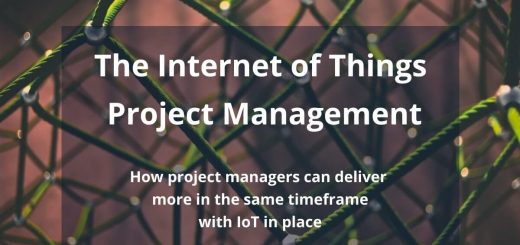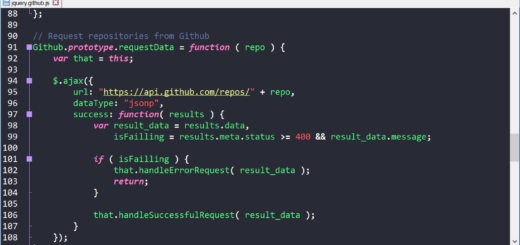How Companies Implement Modern Project Management: 2026 Trends Explained

The economic reality of recent years has accelerated a fundamental transformation in the way organisations structure, manage and execute complex initiatives. Companies are moving away from chaotic, intuition-based decision-making and embracing data-driven, system-oriented approaches that prioritise transparency, predictability and strategic alignment.
As 2025 draws to a close, the upcoming year 2026 is likely to represent a critical milestone in this evolution. It is a moment when modern project management ceases to be a competitive advantage and becomes a baseline requirement for sustainable growth. Organisations that fail to adapt risk falling behind more agile competitors who have already mastered the integration of process automation, analytics and cross-functional collaboration.
In this guide, we provide concise steps, checklists, and KPIs to build integrated project systems, automate workflows, and adopt hybrid methods. Learn how to use AI analytics to align execution with strategy and reduce delivery risk.
Why Companies Are Redefining Their Approach to Work Organisation
Hybrid and remote work models have fundamentally changed the operating conditions of contemporary teams. Traditional tools such as spreadsheets and static project plans no longer provide sufficient visibility or control over distributed operations. As complexity increases, leaders require systems capable of offering real-time transparency, structured reporting and dynamic resource allocation.
Companies, especially startups, now perceive digital project management platforms not as an IT expenditure, but as an investment that improves efficiency, reduces operational risk and strengthens decision-making accuracy. Automation of repetitive administrative activities enables employees to focus on high-value analytical and creative tasks, directly influencing innovation capacity and market responsiveness.

Executive teams increasingly seek integrated ecosystems that unify planning, execution, performance monitoring and strategic reporting within a single framework. This shift marks a transition from reactive management to predictive and continuously optimised operations.
The Strategic Role of PMO Transformation in 2026
Project Management Offices (PMOs) are evolving from bureaucratic control units into strategic performance hubs. Modern PMOs focus on both process compliance and improving organisational agility, which leads to standardised methodologies and supports leadership in real-time decision-making.
A new generation of software platforms supports this transformation by integrating project governance with operational execution. Tools such as FlexiProject.com’s PMO Software enable companies to coordinate project portfolios, monitor KPIs, manage risk and align project outcomes with business strategy. This structural upgrade ensures that project performance is no longer isolated but fully integrated with company-wide goals, financial planning and resource optimisation models.
Systems that Define High-Performance Project Environments
The effectiveness of project execution depends heavily on the choice of supporting technology. Global solutions such as Wrike or Planview are often selected by large corporations due to their advanced reporting capabilities. However, an increasing number of organisations are turning to more adaptive platforms designed to reflect the operational realities of mid-sized and growing enterprises.
FlexiProject has emerged as a strong contender over the past few years by offering:
- highly configurable workflows mapping real business processes,
- intuitive user experience across departments,
- integration-ready architecture for cross-platform collaboration,
- real-time performance analytics for leadership teams.
Its flexibility allows organisations to customise operational logic without compromising governance quality, making it particularly attractive for enterprises navigating digital transformation.

Key Project Management Trends Defining 2026
1. Integrated Digital Ecosystems
Companies are systematically replacing isolated tools with unified platforms capable of synchronising data across communication, finance, HR and operational systems. This integration reduces information silos and enhances consistency across departments, creating a single operational truth that supports better coordination and strategic clarity.
What truly defines this trend is the shift toward interoperability. Organisations increasingly expect their project management systems to connect seamlessly with ERP platforms, CRM software and real-time communication tools. This integration not only accelerates workflows but also improves data accuracy, enabling leadership teams to make decisions based on reliable, consolidated insights rather than fragmented reports.
2. Automation of Administrative Workflows
Routine activities such as reporting, approvals and progress tracking are increasingly automated, releasing project managers from manual oversight and enabling focus on strategic supervision and risk mitigation.
In 2026, automation is no longer limited to simple task reminders. It extends to intelligent process orchestration, where systems automatically trigger approvals, update task statuses and generate performance summaries without human intervention. This leads to measurable time savings and significantly reduces the likelihood of human error, particularly in complex, multi-project environments.
3. Hybrid Methodologies
Organisations are abandoning rigid frameworks in favour of hybrid models combining Agile adaptability with Waterfall structure. This approach offers flexibility while maintaining governance discipline and formal accountability.
Hybrid methodologies allow teams to adapt dynamically to changing conditions while preserving clear documentation, risk control and milestone-based planning. This balance enables organisations to remain responsive without sacrificing strategic oversight, particularly in industries where regulatory compliance and long-term forecasting remain crucial.
4. Real-Time Analytics and AI-Generated Insights
Advanced reporting systems provide predictive indicators of delay, resource overload or underperformance, allowing proactive intervention instead of crisis management.
AI-powered predictive analytics now play a critical role in identifying early warning signals. By analysing historical data and current performance patterns, modern LLM-enabled systems can forecast timeline deviations and resource conflicts before they escalate. This capability transforms project management from reactive troubleshooting into preventive performance optimisation.
5. Human-Centric Management Culture
Companies recognise that technology alone cannot drive success. The focus has shifted towards knowledge management, psychological safety and transparent communication as pillars of sustainable performance.
Modern leadership prioritises employee engagement and cognitive well-being as productivity accelerators. Organisations increasingly invest in training frameworks, mentoring systems and feedback-driven cultures that empower individuals to take ownership of their contributions. This cultural evolution strengthens collaboration and ensures that technology enhances, rather than replaces, human competence.
Knowledge Management and Organisational Maturity
The ability to manage knowledge effectively has become one of the most valuable assets in contemporary project environments. Organisations that document processes, lessons learned and operational guidelines reduce operational risk and ensure consistency across projects.
Knowledge-driven organisations achieve higher reproducibility of success, faster onboarding and better scalability. FlexiProject supports this by enabling structured documentation, clear task history and process mapping within project environments.
From Rigid Control to Adaptive Governance
The shift towards adaptive governance reflects a more mature understanding of project dynamics. Instead of strict procedural enforcement, companies now prioritise outcome-based monitoring supported by intelligent data analysis and continuous improvement feedback loops.
Leadership teams are increasingly aware that performance quality depends on:
- clarity of objectives,
- transparency of evaluation criteria,
- flexibility in execution paths,
- and engagement of empowered employees.
Real-World Impact: From Theory to Measurable Value
Companies that adopt modern project management frameworks consistently demonstrate:
- reduced project overruns,
- improved cross-department communication,
- faster cycle times,
- enhanced accountability structures,
- stronger strategic alignment.
The most successful project implementations show that technological maturity combined with organisational discipline significantly elevates delivery quality and operational resilience.
2026 as a Strategic Turning Point
The year 2026 is likely to be remembered as the point when project management evolved from a basic practice into a strategic function. It will connect operational precision with leadership insight, integrate digital intelligence with human judgment, and transform complexity into sustainable structure.
Companies that invest in advanced project ecosystems today are positioning themselves for long-term competitiveness. Those that hesitate risk inefficiency, fragmentation and strategic stagnation.
Conclusion: The Future Belongs to Structured, Intelligent Organisations
The future of project management lies in intelligent integration, adaptive governance and human-centred execution. Organisations that successfully balance automation with strategic leadership will define the next era of operational excellence.
Platforms such as FlexiProject offer not merely task management capabilities, but holistic systems that connect execution with strategy, operational detail with executive oversight, and data with decision-making clarity.
The competitive edge of tomorrow will not belong to the fastest company, but to the one that manages complexity with precision, transparency and vision.














